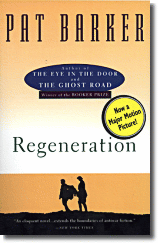As the First World War raged in Europe (and still well over a year before the United States would enter the conflict), Kipling used his influence with the
 highest military officials to get his only son John accepted into the British army. John had already been rejected because of extremely poor eyesight but he, like so many young men of the day, was desperate to serve his country.
highest military officials to get his only son John accepted into the British army. John had already been rejected because of extremely poor eyesight but he, like so many young men of the day, was desperate to serve his country.After his mother Carrie saw John off to war, she wrote in her diary: "There is nothing else to do. The world must be saved from the German ... One can't let one's friends and neighbours' sons be killed in order to save us and our son."
The war took more than his son's life. A country and continent deeply traumatized by the senseless slaughter in the trenches had grown weary of Kipling's martial ethos, and his popularity waned. Brown writes:
He was never able to write directly about John's loss. My Boy Jack is about a sailor--but still a thinly disguised poem about regret and mourning. Shadows of guilt have also been detected in his later work. "If any question why we died/ Tell them, because our fathers lied" is thought to refer to his role in helping his son to bypass the military eyesight rules.
Rudyard Kipling lived until January 1936. But father and son live on in the nation's consciousness. If remains Britain's favourite poem.
Have You News of my Boy Jack?
"Have you news of my boy Jack?"
Not this tide.
"When d'you think that he'll come back?"
Not with this wind blowing, and this tide.
"Has any one else had word of him?"
Not this tide.
For what is sunk will hardly swim,
Not with this wind blowing, and this tide.
"Oh, dear, what comfort can I find?"
None this tide,
Nor any tide,
Except he did not shame his kind -
Not even with that wind blowing, and that tide.
This tide,
And every tide;
Because he was the son you bore,
And gave to that wind blowing and that tide.
I was never much a fan of Kipling.
When it comes to the First World War, I'm a great admirer of Pat Barker's "Regeneration Trilogy" and highly recommend it. Regeneration is the first volume.
--Marshal Zeringue





